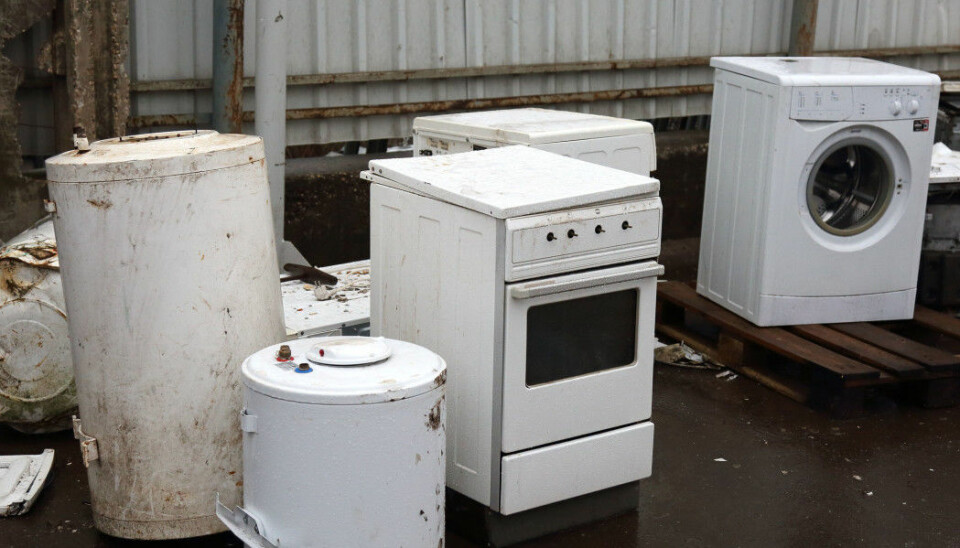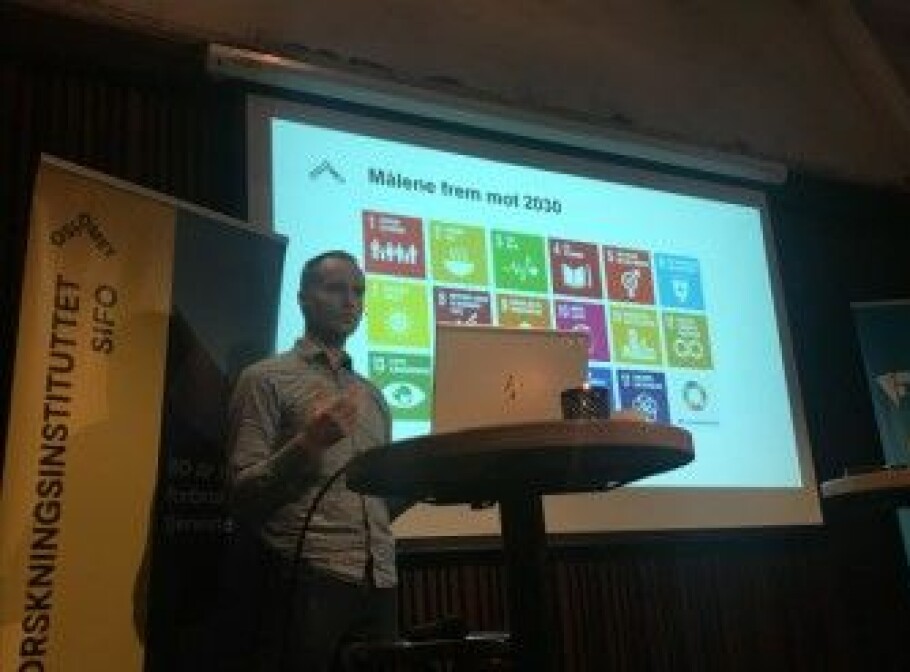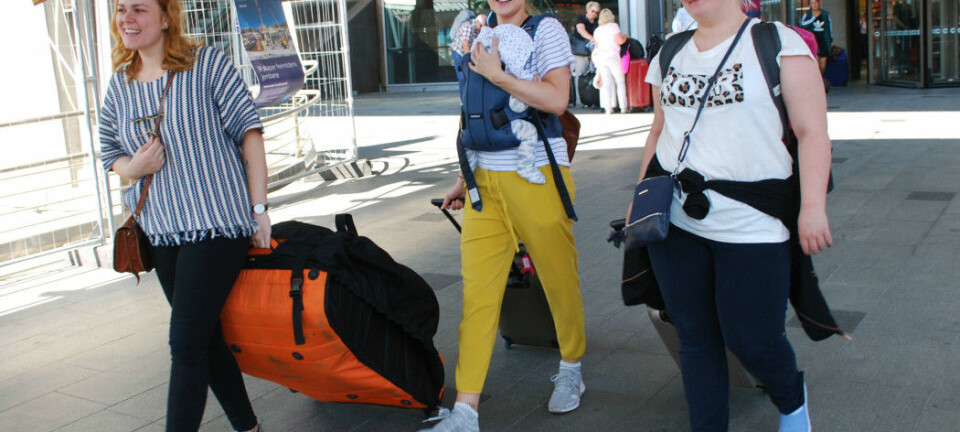
Here’s what politicians can do to make our consumption more environmentally friendly
One researcher is calling for specific measures, such as a law mandating that products be repairable.
Norwegian consumers are among the most polluting in the world. How can we contribute to the shift to a greener future? And is it really our responsibility?
In late January, scientists, politicians, bureaucrats and interest groups gathered at Oslo Metropolitan University (OsloMet) to talk about environmentally friendly consumption.
A government White Paper on consumerism in the future is under treatment in the parliament, and Norway has agreed on new climate targets for 2030 and 2050, after failing to reach its targets for 2020.
How can consumers contribute to the shift to a greener future, and who is responsible for making us more environmentally friendly?
“It’s naïve to believe that we’ll be able to change quickly if we have to wait for consumers and markets to do so voluntarily,” says Torvald Tangeland, a consumer researcher at OsloMet.
Many willing consumers
Tangeland believes that politicians have to make it easier for us to be environmentally friendly. And he’s not alone in this thinking. The rest of the panel, which came from the Norwegian Consumer Council, the Norwegian Consumer Authority, Virke - the Enterprise Federation of Norway and the environmental group Future in our hands, also agreed: Politicians need to be more engaged.
Tangeland has studied Norwegian consumers and how willing they are to eat less meat, buy fewer clothes, drive and fly less, and use less electricity.
Most Norwegians want to live more environmentally friendly lives. New research from CICERO, the Center for International Climate Research in Oslo, confirms this.
But research also shows that Norwegians are less willing to give up concrete things. For example, Norwegians overall agree that environmentally harmful goods and services in general should be banned, but are less willing to give up their cars when asked.

Concrete suggestions for politicians
Norwegians consume 50 per cent more today than they did 20 years ago. This applies to everything from food and clothing to travel, cars and housing.
Panellists agreed that if what people do is going to have an impact, people have to both think and act differently. It’s not enough to buy more environmentally friendly products, such as clothing labelled "sustainable", electricity that is "green" or electric cars, said Elisabeth Lier Haugseth, director of the Consumer Authority, who also attended the meeting.
People simply have to buy fewer things.
And that's where Tangeland thinks we can't wait for consumers. Who would want to buy fewer things? Although people say that they would like to be more environmentally friendly, what they actually end up doing may be something entirely different.
Politicians can regulate consumption via laws and regulations. Tangeland has several specific proposals:
- Put higher taxes on products that have a higher impact on the climate and the environment.
- Prohibit products that are proven to harm the climate and environment.
- Require products to be manufactured so that they can be repaired, and worn-out parts replaced. For example, it should be required that batteries in consumer electronics be replaceable.
- Change the warranty rules so that if a product cannot be repaired, it will be considered defective.
- Require that product software be updated on the internet.
Repairable washing machines
One of Tangeland's proposals is to require products to be repairable.
Take the washing machine, for example. When it breaks down, buying a new one is often cheaper and easier than repairing the old one.
Tangeland believes that a new washing machine must be more expensive, while repairs should be cheaper and more accessible than they are now.
Another example is headphones without replaceable batteries. They have a short life and have to be discarded after the batteries run out. To prevent people from buying them, politicians have to ban stores from selling them.
"The most important thing politicians can do is be brave and think beyond the next election," says Tangeland.
Emissions not only in Norway
Tangeland also thinks it is important for individual countries to look at the emissions that their purchases contribute to outside of their own borders when calculating their overall carbon footprint.
“In order to reach the goal of reducing greenhouse gas emissions globally by 2030 and 2050, politicians must recognize that they can’t only consider emissions from their own country,” he said.
“A great number of products that we consume in Norway are produced elsewhere in the world. This means, for example, that China has increased emissions, while Norway and the EU have had reductions as a result of exporting the production of these goods to other countries,” he said.
The Ministry of Climate and Environment was contacted for a comment, but due to new political leadership was unable to respond.
Translated by: Nancy Bazilchuk
References:
Anton Orlov & Steffen Kallbekken: «The impact of consumer attitudes towards energy efficiency on car choice: Survey results from Norway». Journal of Cleaner Production. 2019, DOI:10.1016/j.jclepro.2018.12.326
T. Tangeland et al: «Endringer i forbruksutviklingen i Norge. Implikasjoner for det grønne skiftet». Forbruksforskningsinstituttet SIFO. 2017 (Changes in consumer developments in Norway. Implications for the transition to a greener future. Consumption Research Norway (SIFO) 2017 in Norwegian only.)
M. Aasen et al: «Folk og klima: Nordmenns holdninger til klimaendringer, klimapolitikk og eget ansvar». CICERO Report; 2019:20. (People and climate: Norwegians’ attitudes towards climate change, climate politics and their own responsbility. In Norwegian only)
———
Read the Norwegian version of this article at forskning.no

































